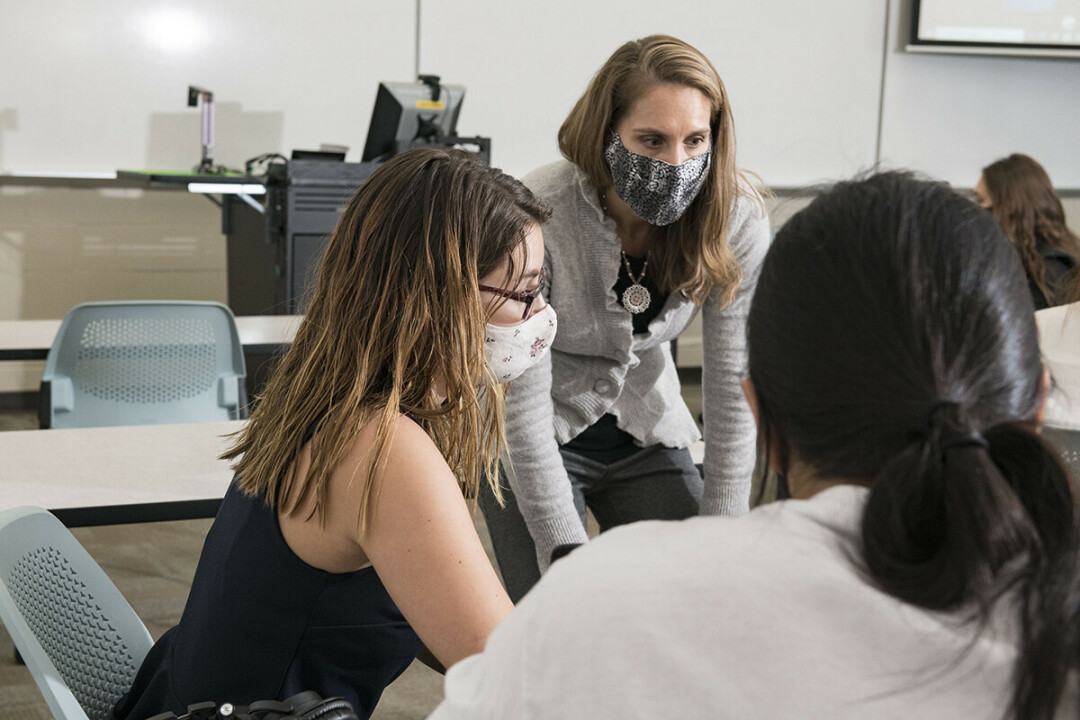UWEC Prof Studies the Science of Saving Lives
local psych prof receives $412K grant to study suicide prevention

Many young women are told that science is “boring” and math is “too hard,” but for researcher and UW-Eau Claire psychology professor Dr. Jennifer Muehlenkamp, researching in the field of clinical psychology is her true passion and area of expertise.
“It’s exciting because I get to answer or attempt to answer, and discover answers to, really complex questions,” Muehlenkamp said. “With being a scientist in the field of psychology, you also deal with a lot of complexities and unknowns.”
Muehlenkamp recently received a competitive $412,000 grant from the National Institute of Mental Health to further research non-suicidal self-injury and the short-term risk factors for suicide in young adults.
”
You remind yourself of the times that things have worked and you've made a difference and people have recovered.
JENNIFER MUEHLENKAMP
UWEC Psychology professor + Researcher
“We know from research that has already been conducted that suicidal thinking and risk through actual attempts can fluctuate somewhat rapidly over the course of a day and definitely throughout the course of a week,” she explained. “And so, to advance the science and help clinicians be better prepared to help people, we need to understand what are those co-occurring things that happen within a day and across a week that relate to those intensifications of risk.”
The study will involve 125 participants through the university’s Suicide Prevention and Awareness Research Collaborative (which Muehlenkamp organized), using ecological momentary assessment (EMA) to focus on small changes in behavior throughout a short period of time, which can inform risk assessment. Though it’s a challenging field of study, Muehlenkamp focuses on the positives.
“That’s part of how you get through: You remind yourself of the times that things have worked and you’ve made a difference and people have recovered, which hundreds of thousands of people recover,” she said. “And so even though suicide is a huge tragedy, and we lose too many people to suicide, there’s many – like, I don’t even know what the statistic would be – but there’s hundreds more that get through those moments and survive.”
Muehlenkamp, a former UW-River Falls student, received her Ph.D. in clinical psychology from Northern Illinois University after finishing an internship at Montefiore Medical Center in the Bronx in New York. It was there that she fine-tuned her passion for studying adolescent non-suicidal self-injury and suicidal behavior.
There's still so many questions to be answered. There's still a lot that we don't know.
JENNIFER MUEHLENKAMP
UWEC PSYCHOLOGY PROF + RESEARCHER
In addition to teaching and researching, Muehlenkamp is a consulting editor for the journal Archives of Suicide Research and regularly contributes to a handful of clinical journals. She encourages young women to seek solutions to challenging problems – especially if those issues are ones they’re passionate about.
“There’s still so many questions to be answered,” she said. “There’s still a lot that we don’t know about what puts people at risk, what helps people get through the tough times, what actually prevents suicide. And so I think that’s really a big part of it: There’s still lots of questions.”


